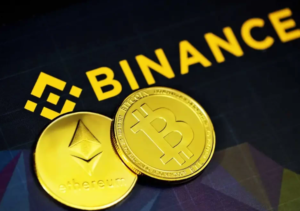$EWY $KRW $BTC
#SouthKorea #PresidentYoon #Impeachment #SouthKoreanPolitics #AsiaMarkets #KRW #Geopolitics #GlobalEconomy #Investing #StockMarket #Crypto #MartialLaw
South Korean President Yoon Suk Yeol finds himself embroiled in a political and constitutional crisis, facing impeachment by parliament. The suddenly escalating tensions stem from his decision to declare martial law, only to revoke it six hours later due to intense nationwide backlash. This unpredictable political atmosphere has reverberated not only across South Korea’s political landscape but also its financial markets, where uncertainty is pressuring key sectors and spooking investors. The won ($KRW) slipped against the dollar following the announcement, while the MSCI South Korea Index ETF ($EWY) saw spikes in volatility as foreign investors reevaluated their exposure to the country. Cryptocurrency markets didn’t escape unscathed either, with Bitcoin ($BTC) exemplifying heightened sensitivity to geopolitical risk as prices saw brief swings amid the turmoil.
The financial repercussions of South Korea’s political instability are notable given the country’s significance as Asia’s fourth-largest economy. For global investors, any impediment to South Korea’s economic governance could exacerbate already fragile macroeconomic scenarios, and this impeachment battle has introduced several unknowns. The temporary martial law declaration caused immediate reactions from both domestic and foreign investors, raising concerns about the rule of law and policy continuity. The South Korean stock market, a bellwether for the broader region, saw a rise in selloffs in export-heavy sectors such as technology and automotive. Major players like Samsung and Hyundai could face headwinds if political unrest dampens production or exports, both of which are critical contributors to the nation’s GDP. The $KRW’s weakness against the dollar underscored fears that instability could weigh on capital inflows and create liquidity issues for foreign-exposed firms.
Beyond equities and forex, the volatility rippled into cryptocurrency markets, where South Korea is a key player. The country is well-known for being one of the largest Bitcoin and Ethereum trading hubs, with crypto exchanges such as Upbit and Bithumb commanding massive daily volumes. This crisis has rekindled discussions about whether crypto assets are truly insulated from geopolitics. Cryptocurrencies like Bitcoin ($BTC) fell into a brief selloff as speculation grew over whether a potential government shift could lead to tighter regulations or capital controls impacting crypto markets. However, the pullback was short-lived, highlighting the enduring resilience of investor sentiment toward digital assets even in the face of escalating threats from traditional political environments.
The impeachment process now has the world watching closely, with financial analysts warning of broader spillover into Asia-Pacific markets should instability persist. South Korea’s well-integrated supply chains mean interruptions could ripple far beyond its borders, particularly across technology-driven industries. Furthermore, emerging market funds, many of which have significant exposure to Seoul stocks and the won, may face a period of heightened volatility. Investors in ETFs such as $EWY could see continued fluctuations as this high-stakes drama unfolds. Additionally, if the political climate erodes consumer confidence, South Korea’s domestic demand—already strained by global economic pressures—may weaken further, impacting corporate earnings across the board. For now, investors must tread cautiously, with close attention to political developments and economic indicators.










Comments are closed.